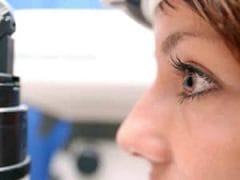
Keratoconus is a disorder that impairs the cornea (the transparent dome-shaped shield which enables clear vision and protects the iris and pupil). This condition can seriously affect vision and may eventually lead to legal blindness if not treated in time. A person can develop keratoconus because of different factors, such as genetics, past trauma to the cornea, hormonal changes, excessive sun exposure, and as a side effect of certain health disorders such as skin, respiratory and food allergies. Here are some frequently asked questions to help you better understand this disorder and its treatment.
How does keratoconus affect vision?
Keratoconus causes your cornea to lose its original shape and become thinner. As a result, it tends to protrude outward from the eye in the shape of a cone, resulting in distorted vision. Although uncommon, keratoconus can affect anyone older than eight years, and it can continue to progress until the age of 40.
What are the most common symptoms of this condition?
The foremost symptom of keratoconus is an increased sensitivity to light. In addition, changes in the cornea can lead to eye strain, headaches, eye pain, blurry vision and myopia (nearsightedness or difficulty seeing distant objects).
Keratoconus generally occurs in both eyes. As the condition develops and the cornea becomes more deformed, symptoms such as eye irritation, swelling, watering, and itching can occur, which can be alleviated with eye drops prescribed by a qualified ophthalmologist. Some patients also experience headaches. In spite of using eye drops, keratoconus can continue to get worse and may require surgery to stop it from progressing.
How is keratoconus treated?
The condition must be treated in time as delay in treatment can cause permanent and irreparable damage to the cornea. Mild keratoconus is treatable with contact lenses or glasses. While its symptoms can be subdued with eye drops, the disorder can be stopped from developing further with the help of advanced LASIK surgery.
Effective keratoconus treatment involving laser eye surgery involves reshaping the cornea in order to restore normal and clear vision. Laser eye surgery is a painless procedure that does not require hospitalization. It is a simple 15-minute procedure that has advanced exponentially in the past years. For best results, ensure that your LASIK surgery is performed by an experienced and competent eye surgeon.
What is collagen cross-linking?
It is a relatively new but promising treatment option for slowing or stopping the progression of keratoconus. The procedure involves the application of vitamin B2 drops and ultra-violet light to the cornea to strengthen its tissue so that it will become less prone to deformation.
Collagen cross-linking is a non-invasive procedure that stabilizes the cornea by stimulating collagen production. It has shown to be effective in halting or completely stopping corneal deformation. Combined with LASIK, collagen cross-linking can repair vision and provide relief from keratoconus symptoms.
What type of special lenses can correct vision problems caused by keratoconus?
Your eye doctor can recommend the contact lenses best suited to your condition. Some options include reverse geometry contact lenses, scleral lenses and hybrid contacts.





